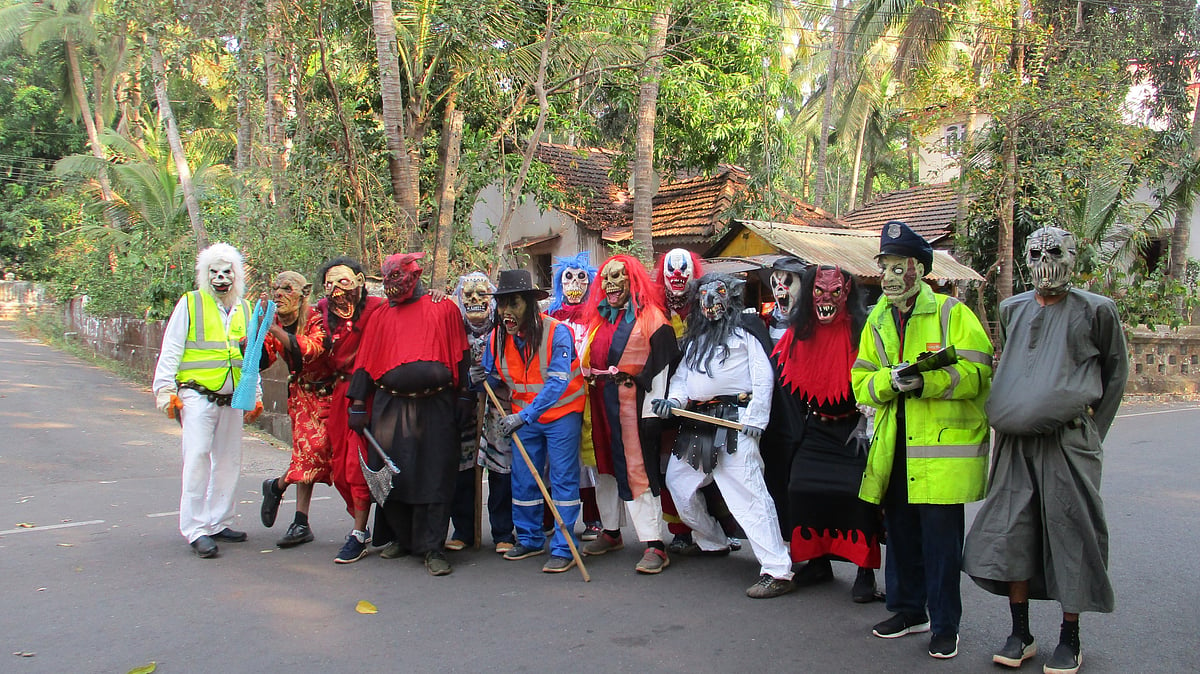Do you remember the first lockdown in 2020? Of course, you do. Remember how suddenly the sky wore a royal blue hue, how dolphins were spotted in the canals of Venice and people could see the Himalayas from Chandigarh! It was all for a reason. While human civilisation was going through its worst crisis in a century, nature recharged itself. Sustainability is the key to survival. If we aren’t climate-conscious and worried about mother earth, life wouldn’t be easier.
Priti Bose is a travel influencer on Instagram with an enviable number of followers. Working at a micro-energy company, she has realised the earth is in urgent need of good-hearted souls who can commit to minimising carbon footprint. She practices sustainable travel and preaches the same.
There are more travellers like her, despite not having a blog or a social media following, who believe that the onus is on travellers who need to be cautious to make travelling as eco-friendly as possible.
With a significant rise in their disposable incomes, the millennials who would slog the whole week in the office have become serious about unleashing their wanderlust. Their pursuit of happiness has improved the economy of tourism at offbeat destinations across India that have stayed out of reach of generic travellers for long. However, not everything is hunky-dory.
With enthusiastic travellers increasing every day, there is a new menace that has popped up – our pristine lakes becoming polluted, rare flora and fauna disappearing, and nature being killed by concrete. All these indicate over-tourism. Blinded by money, dishonest businessmen are seeing tourism as an opportunity to exploit nature.
And this is where young travellers like Priti and more are leading a silent movement. This breed of travellers believes in the conservation of nature for our future generations and is changing the way people travel.
Choosing the commute
To make your journey eco-friendly, it’s always better to choose public transport. And many travellers do that by taking local buses and shared cars. If you choose to drive, you can team up with your friends/ families so that one car carries at least four people. While choosing flights, go for the ones that emit less carbon. And how do you do that? Choose airlines that use newer aircrafts and offer direct or less-time consuming flights.
Say no to plastic
While using plastic carry bags is a strict no, there are more. Travel writer Navneet Kaur, who is planning a trekking expedition to Spiti Valley this August said, “The first step is carrying your own water bottle. There are plenty of packaged bottles available, but there aren’t enough recycling bins along the roads. Even if you dump it in a bin, chances are it might end up in a pristine mountain river due to systematic flaws. When the bottle gets empty, you can always fill it from a nearby spring or café.”
If you doubt the hygiene quality, buy a packaged one, refill your own and discard the bottle at a big dhaba. Since these big restaurants need tons of licenses to operate, they tend to recycle to ensure they aren’t penalised.
The next on the list is to stop buying chips and biscuits from roadside dhabas. Instead carry the chips, biscuits, and chocolates before you start from your home and pack those in your reusable boxes. So, you don’t leave things behind. It might be a bit heavy on your shoulder but easy on mother nature.
Eat local
Eating what the locals are is an integral part of the travel experience. And, it also helps you save waste by eating at places that you take a halt. “The worst trend for mountain travellers is probably the ‘Pahado Wali Maggi’ or Instant Noodles in the hills. The Himalayas have their own culture. Go for food that the locals eat. If you are insisting on packaged instant noodles, remember they don’t produce them up in the hills. A truck emitting carbon goes up the hill, you eat maggi with disposable cutlery and the maggi seller dumps the garbage in the corner. This practice leaves a major dent in the ecology,” said Muneet Pasricha, a marketer turned writer.
Prefer homestays
Apart from personalised services, local culture and comfortable yet traditional accommodation, staying at a homestay helps in conserving the ecology. Suresh Sharma, who runs a homestay at Fagu near Shimla said, “When hotels run commercially, they source everything right from vegetables to furniture from big traders or brands who give them a wholesale price. But for homestay owners like me who have four rooms, I have to buy everything locally because I don’t qualify for bulk purchases.”
And this makes all the difference. You might not be directly buying local but just by staying at a homestay, you are definitely being vocal for the locals.

Ask hotels about eco-friendly steps
“When you as a customer start asking the hotels about environmental measures, they start realising the importance. Ask whether they have a wastewater recycling pit, if they reuse plastic, where do they dump their waste! Once you start asking them questions, they will feel obligated. Also, hotel booking sites need to be specific. Hotels who follow the norms of minimising carbon footprint need to be provided with a badge of honour, which makes them different from the crowd,” said Asad Hussain, president of a hotel owners’ association in North Sikkim.
Hire local guides
While Google Maps and other online resources are amazing, nothing beats local knowledge in offbeat regions be it the Himalayas or the Arabian Sea. When you hire a local guide, you support their community. Nobody loves a place more than one who is born there. These locals then stay in their villages and don’t migrate to big cities in search of a job and thereby preserving the serenity of the place. The new-age breed of travellers follows all the above checklists to ensure their expedition doesn’t exploit the environment. Also, they believe in not exploring Bollywood hyped destinations and playing loud music in mountains and forests as a part of their travelling discipline.













